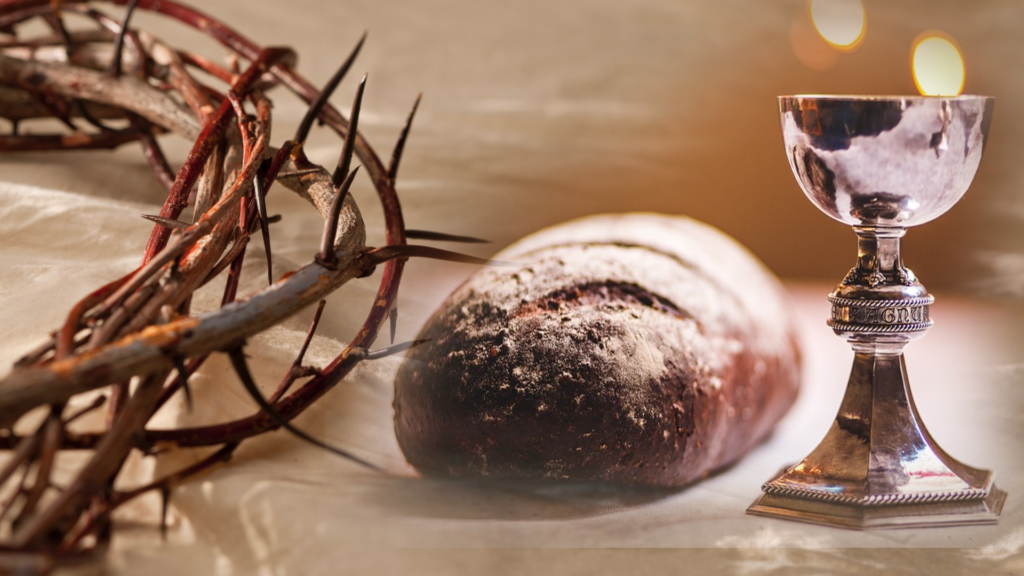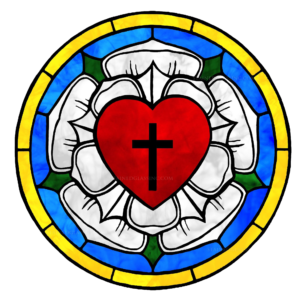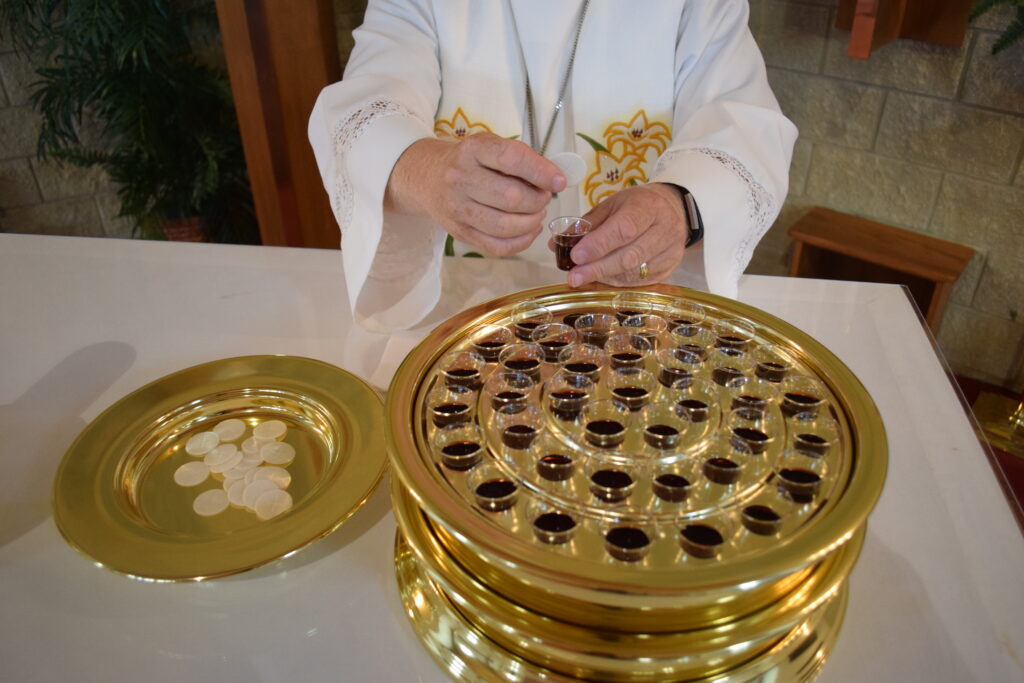Communion

Holy Communion
In the Sacrament of Holy Communion bread and wine are united with God’s Word to give us Jesus Himself. On the night before Jesus died on the cross, He celebrated the Passover meal with His disciples. The Passover feast celebrated that God had led his people from slavery in Egypt to freedom. At the Passover, a lamb had to be slain, with the blood being placed on the doorframes of the people’s houses. The angel passed over the houses that had been marked with the shed blood. Jesus transformed that meal by giving us his body and blood in, with, and under the bread and wine, saying “take, eat, this is my body…Dink of it, all of you; this cup is the new testament in my blood, which is shed for you for the forgiveness of sins…” Jesus Himself became the sacrifice for the forgiveness of sins.
The Lord’s Supper is celebrated at this congregation in the confession and glad confidence that, as He says, our Lord gives into our mouths not only bread and wine but His very own body and blood to eat and drink for our forgiveness of sins and to strengthen our union with Him and with one another. Our Lord invites to His table those who are sorry for their sins, believe in our Savior Jesus Christ and His words in the Sacrament, set aside any refusal to forgive and love as He forgives and loves us, and plan with the help of the Holy Spirit to change their sinful life.
Because those who eat and drink our Lord’s body and blood unworthily do so to their great harm, and because Holy Communion is a confession of the faith which is confessed at the altar, any who are not instructed, in doubt, or who hold a confession differing from this congregation and the teaching of the Lutheran Church—Missouri Synod, and yet desire to receive the sacrament, are asked first to speak with the Pastor or an Elder before the service begins. (Note: the center cup in the communion tray has white grape juice for those who cannot take wine for medical purposes. Gluten-free wafers are in a cup with other gluten-free wafers.)
Luther’s Small Catechism

The Sacrament of Holy Communion
As the head of the family should teach them in the simplest way to those in his household.
THE INSTITUTION OF HOLY COMMUNION
First: What is the sacrament of Holy Communion?
It is the true body and blood of our Lord Jesus Christ under the bread and wine, instituted by Christ for us Christians to eat and to drink.
Where is this written?
The holy Evangelists Matthew, Mark, Luke, and the Apostle Paul tell us: Our Lord Jesus Christ, on the night he was betrayed, took bread; and when he had given thanks, he broke it and gave it to his disciples, saying, “Take and eat; this is my body, which is given for you. Do this in remembrance of me.”
Then he took the cup, gave thanks, and gave it to them, saying, “Drink from it, all of you; this is my blood of the new covenant, which is poured out for you for the forgiveness of sins. Do this, whenever you drink it, in remembrance of me.”
THE BLESSINGS OF HOLY COMMUNION
Second: What blessing do we receive through this eating and drinking?
That is shown us by these words, “Given and poured out for you for the forgiveness of sins.” Through these words we receive forgiveness of sins, life, and salvation in this sacrament. For where there is forgiveness of sins, there is also life and salvation.
THE POWER OF HOLY COMMUNION
Third: How can eating and drinking do such great things?
It is certainly not the eating and drinking that does such things, but the words, “Given and poured out for you for the forgiveness of sins.” These words are the main thing in this sacrament, along with the eating and drinking. And whoever believes these words has what they plainly say, the forgiveness of sins.
THE RECEPTION OF HOLY COMMUNION
Fourth: Who, then, is properly prepared to receive this sacrament?
Fasting and other outward preparations may serve a good purpose, but he is properly prepared who believes these words, “Given and poured out for you for the forgiveness of sins.” But whoever does not believe these words or doubts them is not prepared, because the words “for you” require nothing but hearts that believe.

